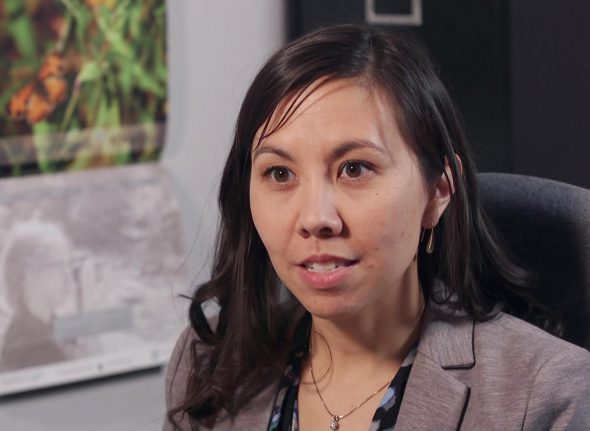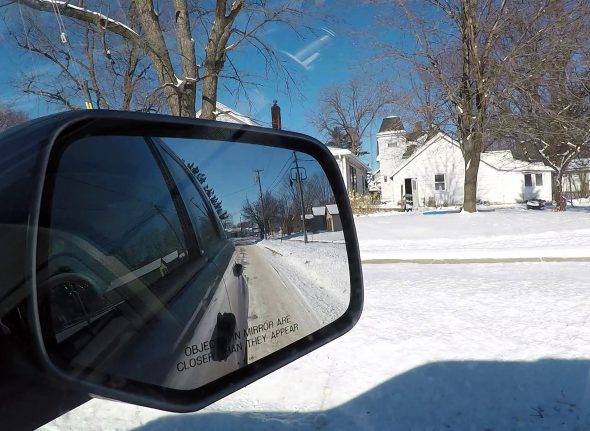Kids Sent Out of State for Mental Health Care
Wisconsin sends hundreds of children to other states for residential treatment as in-state beds decline.
Lance Horozewski leads Rock County‘s public agency that connects families and children to the support services they need. One difficult element of his work requires connecting particularly vulnerable kids to residential care centers where they can safely receive treatment for complex mental and emotional health needs.
In an ideal world, Horozewski and the county’s Division of Children, Youth and Families would find local facilities. In a less ideal but still acceptable scenario, he would look to place children within a short drive from their homes in southern Wisconsin. In reality, though, Horozewski is forced to send many children more than 600 miles south to a facility outside of Memphis, Tennessee.
“Definitely, it’s a problem,” Horozewski said. And it’s a problem that extends beyond Rock County.
Horozewski’s department began having more difficulty placing children with complex mental health needs in facilities in Wisconsin around 2015. It has become especially difficult to secure beds for kids who require the most complex care, he said, including children with aggression and who are at high risk for suicide.
“They’re very disconnected,” Horozewksi said, whether it be from their families or from local treatment and transition services.
“It’s hard to transition kids back to the community when they’re so far away,” he said.
Hundreds of children in Wisconsin’s child welfare and juvenile justice systems who have complex behavioral health needs are being sent for care to facilities outside of the state — as far away as New Hampshire and New Mexico — as the number of care options within the state dwindles. Some of those children have received treatments not allowed at comparable facilities in Wisconsin, including forced sedation, according to advocates who say the state is failing to meet the needs of some of its most vulnerable residents.
Data from the Wisconsin Department of Children and Families, which tracks out-of-home placements of children in state systems, show that as recently as 2014, Wisconsin sent only about two dozen children for care outside of the state. But since 2015, that number has steadily risen, with more than 100 placements in out-of-state care facilities in both 2017 and 2018.
At the same time, these data show the number of beds at in-state licensed residential care centers, the facilities equipped to care for children with complex needs, fell from 1,291 to 950 between 2012 and 2018, a drop of more than 25%.
The decline in residential care center beds comes as some providers have scaled back their services while others have closed entirely, including the troubled Wyalusing Academy near Prairie du Chien, as well as the Carmelite Home for Boys in Wauwatosa and SaintA’s residential treatment center in Milwaukee.
The dislocation of out-of-state placements
Lance Horozewski is not the only professional worried about the effect of such long distances on children who are already emotionally and mentally vulnerable.
The growing scarcity of out-of-home care options in Wisconsin for children with complex needs is raising alarms among attorneys and social workers in the state’s juvenile justice and child welfare systems. They say sending children with needs that are often linked to traumatic pasts to facilities hundreds of miles away from their homes is undesirable for the children and their families, and burdensome to the service providers who work with them.
Eileen Fredericks is an assistant state public defender based in Dane County who represents children charged with crimes, as well as teenagers in the state’s child welfare system who are victims of abuse and neglect. Occasionally, the children Fredericks represents require out-of-home care for complex behavioral health needs similar to those described by Horozewksi. She said finding facilities in Wisconsin for these children has become increasingly difficult over the last three years.
Fredericks wrote about the problem in a March 2018 newsletter for the State Bar of Wisconsin.
“[In] a lot of ways, these children are on their own,” she wrote. “Social workers cannot have the same knowledge and experience with placements when the placements are all over the country and many are a lengthy plane ride away.”
More than a year later, Fredericks said in an interview with WisContext that the situation has not improved.
“Most of the kids with high needs are being sent out of state now,” Fredericks said. “I do think it’s a huge problem.”
The children’s needs are almost always mental-health related, she explained, and include aggression, self-harm, suicidal ideation and a tendency to run away, which can put them at risk for trafficking. A lack of local facilities or even facilities elsewhere in Wisconsin that are capable of serving them means these children are often sent far away from everyone and everything they know.
Fredericks and other advocates described the problem in Wisconsin Public Television’s May 2019 documentary Not Enough Apologies.
The documentary includes the case of a 14-year-old girl from Wisconsin who was placed in a residential facility south of Little Rock, Arkansas.
“I want to go home. I really do,” the girl said. “[N]one of the other facilities would accept me in Wisconsin.”
Benjamin Gonring, an assistant state public defender and a colleague of Fredericks’, said the girl’s situation, and the situations of dozens of children like her, has prompted him to speak out about a system he views as plainly unjust.
“Things have gotten to a point where we’re sending kids hundreds of miles away from whatever supports they have, which are not great, but they’re still the most important supports in that kid’s life,” Gonring said in the documentary. “And the idea that we’re sending them 500, 900 miles away was just unconscionable to me.”
Fredericks agreed.
“Obviously we don’t like for kids to be so far away from families,” Fredericks told WisContext. “A lot of the kids who are in treatment centers [in Wisconsin] can visit their families every week. That’s not happening in these out-of-state facilities.”
The long distances are also a problem for the children’s Wisconsin-based advocates, Fredericks added.

Fredericks: “Most of the kids with high needs are being sent out of state now.” Photo from Wisconsin Public Television.
“It’s just really hard for us to have oversight in terms of social workers visiting and people kind of knowing what’s going on,” she said, adding that it can be difficult to adequately vet far flung facilities prior to a placement.
As with the children that Rock County serves, several of Fredericks’ clients have received care at Youth Villages, which she said has a reputation for providing quality care. In fact, more than a third of children sent for out-of-state care in 2017 and 2018 went to Youth Villages campuses in Tennessee and Georgia, Wisconsin Department of Children and Families data show.
However, Fredericks also noted out-of-state facilities where Wisconsin children have been sent whose quality of care she considers subpar or inappropriately severe. In particular, Fredericks described the case of a boy whom she began representing after he had been placed in a different care facility in another state.
“[He] really hated it there … and had a lot of bad experiences there,” she said. “It felt very prison-like to him.”
The boy has since returned to Wisconsin and transitioned to foster care, Fredericks said, but not before a drawn-out period in which she struggled to find an alternative placement for him. The experience exposed to Fredericks just how risky the state’s dependence on relatively unknown out-of-state facilities can be.
“It’s hard for us to argue against a place that we don’t know that much about when it’s kind of the only option,” she said. “And some of the out-of-state places are really extreme.”
Again, she singled out the same facility, where Fredericks said a colleague’s client was regularly and forcibly sedated, a practice that is prohibited in Wisconsin’s residential care centers.
A broader child welfare crisis
The rise in out-of-state placements for children with complex needs has coincided not only with a slide in residential care facility beds in Wisconsin, but with a rise in the total number of children in the state’s child welfare system.
“When you look across the state, county child welfare systems are literally overwhelmed,” said Jason Witt, director of the La Crosse County Human Services Department. “This is really a crisis,” he added, explaining what counties are facing in a May 10 interview on Wisconsin Public Television’s Here & Now.
“In recent years, we’ve seen just a surge of children entering our foster care system, to such an extent that we are struggling to find enough foster homes to keep children local and even at some times within the state,” Witt said, adding that the rise has been fueled by opioid and methamphetamine abuse.
The number of children in Wisconsin outside of Milwaukee County who are in foster care and other out-of-home care has risen 40% since 2012, he said.
This surge in children entering the foster care system has stretched county budgets and strained service providers.
“County social workers who work tirelessly in [out-of-home placements] have experienced a huge increase to their caseloads,” Portage County Executive Chris Holman wrote in an April 29 op-ed published in local newspapers. “This causes worker burnout, increased turnover and best-practices for child welfare often go unmet simply because there aren’t enough people or hours in the day to do everything that’s required.”
Though children with complex care needs who are being sent to out-of-state care facilities represent just one small part of the overall system, their situations are symptomatic of the wider crisis, advocates say.
Searching for solutions
Advocates point to specific issues that they say are contributing to the rise in out-of-state care. Most are thought to be contributing to the dwindling number of adequate facilities and total beds in the state.
Among these factors are state bans on certain practices considered standard in residential care facilities elsewhere. This does not include forced sedations, which advocates say Wisconsin rightfully bans in residential settings. Instead, Eileen Fredericks, Lance Horozewski and others point to the state’s ban on cameras in residential care centers, as well as to a lack of legal clarity about whether such facilities can include locked wings.
Addressing these two issues through statutory changes are among several recommendations Horozewski and other stakeholders across the state made in a March 2018 report for the state Department of Children and Families.

A lack of local facilities or even facilities elsewhere in Wisconsin that are capable of serving them means children with high mental and emotional health needs that require specialized care are often sent far away from everyone and everything they know. Photo from Wisconsin Public Television.
The report, solicited by the agency, also proposed a new service model for children with complex needs that would allow for easier transitions between levels of care and improve access to “wraparound” services that providers say are often a linchpin for successful transitions out of residential care.
One issue not explicitly addressed in the report is the cost of care and its relationship with how much residential care providers are allowed to charge for their services.
Linda Hall is the executive director of the Wisconsin Association of Family and Children’s Agencies and led the stakeholder group that produced the state’s report along with Horozewski. In addition to the recommendations outlined in the report, Hall said she would like to see the state modify how it regulates provider rates.
In 2011, state regulations previously signed into law by Gov. Jim Doyle took effect. These rules require operators of group homes and residential care centers to charge rates determined by the Department of Children and Families on an annual basis.
Hall blamed rate regulation for a worsening financial position among the state’s residential care providers, which she said sometimes cannot charge enough to stay afloat.
These requirements “led to providers getting rates that were less than adequate for covering costs,” Hall said. “That led to agencies not growing their business or cutting back.”
For his part, Horozewski said the issue of rate regulation falls outside of his scope of work. Still, he said, “the rates we are paying to send kids out of state are substantially higher than local rates,” indicating that the set rates for residential care providers in Wisconsin are lower than those in some other states.
On top of those costs, counties must send social workers to meet with out-of-state children at least once a month. Travel costs can quickly add up when those children are in Tennessee or Georgia, or any of the dozen or so other states where children have been placed.
Both Hall and Horozewski acknowledged that a host of contributing factors can’t be solved with statutory or regulatory changes, including local workforce shortages and the wider rise of children in the welfare system.
Wendy Henderson took over in March as the administrator for the division of safety and permanence at theDepartment of Children and Families, with a purview that includes residential care centers. She said the department under the administration of Gov. Tony Evers is looking forward to working with stakeholders to reduce the number of children sent out-of-state for care.
“I think that it’s everybody’s preference throughout the child welfare system that kids first and foremost be served in their home if they can be served safely there, and in the event that they can’t that they’re served in the closest place to home and in the least restrictive environment,” Henderson said.
She said her division is beginning a strategic planning process with providers and county partners that could take up recommendations outlined in the agency’s 2018 report. She also signaled openness to adjusting how the state sets provider rates.
Above all, however, Henderson said Wisconsin is committed to reducing the need for out-of-home care in the first place, a priority of the federal Family First Prevention Services Act of 2017, which was passed in 2018 federal budget. That could help free up beds for those children with the highest needs, Henderson said.
“I think … we’re going to see some pretty significant shifts back toward some more home-based service, and for the kids with the complex needs what we can do in-state to try to meet their needs,” she said. “We’ve got a lot of work to do.”
Why Is Wisconsin Sending Hundreds Of Children Out Of State For Mental Health Care? was originally published on WisContext which produced the article in a partnership between Wisconsin Public Radio and Wisconsin Public Television.






















